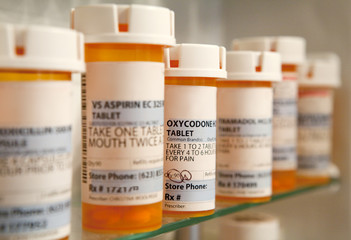
New Benefit of Echinacea Discovered
Echinacea's immunomodulatory and anti-inflammatory effects are well-known, but its potential psychotropic effects are just beginning to be explored. Now, researchers believe this herbal remedy may even offer anxiety relief!
Echinacea, also known as coneflower, is one of the most commonly used herbal products, valued traditionally for immune system support and relief from respiratory symptoms.[i] Native Americans used echinacea for hundreds of years to treat respiratory infections, colds, coughs, bronchitis and more.[ii]
While its immunomodulatory and anti-inflammatory activities are well-known, at our echinacea research database you can learn about 130 diseases that this herbal remedy may benefit. With at least 54 known pharmacological actions, emerging evidence also suggests echinacea has anxiety-relieving and mood-enhancing effects.[iii]
Echinacea for Anxiety Relief
In 2010, researchers showed for the first time that echinacea had anxiety-relieving effects in an animal study.[iv] In 2013, a study again found that echinacea extract reduced anxiety in rats.[v] The team then tested echinacea extract in humans, administering one or two tablets containing 20 milligrams (mg) of the plant extract daily for one week.
The higher, two-tablet dose decreased anxiety after just three days, "an effect that remained stable for the duration of the treatment (seven days) and for the two weeks that followed treatment," the researchers noted. In 2020, another study -- a double-blind, placebo-controlled trial -- tested 40 mg of echinacea daily for seven days among adults with anxiety.
Echinacea led to significant decreases in anxiety scores compared to placebo, suggesting "particular echinacea preparations have significant beneficial effects on anxiety in humans."[vi]
Antidepressant Effects of Echinacea Uncovered
Again in 2021, researchers looked into echinacea's psychotropic effects, this time giving adults with mild- to moderately severe anxiety a placebo, 20-mg dose of echinacea or 40-mg dose of echinacea twice daily for six weeks.[vii]
While both doses of echinacea led to reductions in anxiety, the reductions were not significantly different than those in the placebo group. However, both echinacea groups had greater improvements in positive and negative affect and emotional well-being compared to placebo.
Positive affect describes the degree to which you feel interested, excited, proud, alert, inspired, enthusiastic and other positive feelings. Negative effect includes feelings like hostility, irritability, shame and fear.
"Low levels of positive affect have been shown to predict the onset of depression and are associated with increased severity in depressive symptoms," the researchers noted. So the findings that echinacea boosts positive affect and lowers negative affect, while also improving emotional well-being scores, "suggests echinacea may have antidepressant effects."[viii]
Echinacea May Influence the Cannabinoid System
Several of the studies used an echinacea extract with a standardized amount of alkamides, compounds in echinacea believed to be associated with its anxiety-reducing effects, likely by influencing cannabinoid CB1 and CB2 receptors.[ix]
It's believed that echinacea's anxiety-relieving effects may be linked to the cannabinoid system, which is a network of chemical signals and cellular receptors that regulates learning, memory, emotional processing, sleep and much more throughout the body.[x] The cannabinoid system has been linked to not only anxiety but also depressive symptoms.
It's also likely that echinacea's powerful immunomodulatory and anti-inflammatory effects are involved in its mood-boosting potential. According to research published in the Journal of Effective Disorders:[xi]
"Another potential mechanism that may be associated with echinacea's antidepressant effects is via its anti-inflammatory influence. There is a strong body of evidence confirming echinacea has immunomodulatory effects. Because depression is associated with chronic, low-grade inflammation, echinacea's anti-inflammatory effects may potentially be responsible for its antidepressant influences."
What Else Is Echinacea Good For?
Echinacea's beneficial properties include antioxidant and antimicrobial effects, as well as potential for helping prevent and treat liver diseases.[xii] Antiviral effects have also been uncovered, with echinacea showing effects against influenza, herpes simplex and coronaviruses, along with the common cold and upper respiratory infections.
Further, among reproductive-age women, echinacea supplementation significantly boosted the clearance of human papillomavirus (HPV) lesions.[xiii] Echinacea also has pain-relieving effects and may help reduce neuropathic pain[xiv] as well as pain from knee osteoarthritis.[xv]
Echinacea extract has even been found to induce the mobilization and homing of stem cells, helping them reach heart tissue where they may help with regeneration after heart attack.[xvi] In fact, echinacea has dozens of pharmacological actions, including:
| Immunostimulatory | Antibacterial |
| Antiulcer | Radioprotective |
| Apoptotic | Neuroprotective |
| Antihypertensive | Anti-allergic |
Are There Other Options for Natural Anxiety Relief?
Regarding anxiety, echinacea is just one promising option that may help. For more, you can find 174 natural anti-anxiety agents here. Each of these is scientifically backed, like echinacea, to provide natural relief. Some of the most promising options to explore include:
| Cannabidiol | Psilocybin |
| Probiotics | Saffron |
| Lavender | Chamomile |
| Bitter orange | Ayahuasca |
| Rose | Ashwagandha |
| Curcumin | Passion flower |
© [4/28/2023] GreenMedInfo LLC. This work is reproduced and distributed with the permission of GreenMedInfo LLC. Want to learn more from GreenMedInfo? Sign up for the newsletter here //www.greenmedinfo.com/greenmed/newsletter.
----------------------------------------------------------------------------------------------------------------------
Like free stuff? Us too! Read below to find out how you can get 3 free CNE courses!
It is imperative that nurses involved in the care and management of patients with Iron Deficiency Anemia are familiar with the disease state, understand intravenous iron infusion administration protocols, and monitoring of potential complications that may arise with specialty infusions. Pedagogy provides the means to educate nurses on this topic with three courses dedicated to Iron Deficiency Anemia and the treatment of this disorder with parenteral iron preparations. These courses include current best practices for ideal patient outcomes and safety.
- Iron Infusion for the Treatment of Iron Deficiency Anemia
- Iron Deficiency Associated with Pregnancy
- Iron Deficiency in the Bariatric Patient
Through an independent educational grant from Pharmacosmos Therapeutics Inc, we are offering the below courses at no charge!

